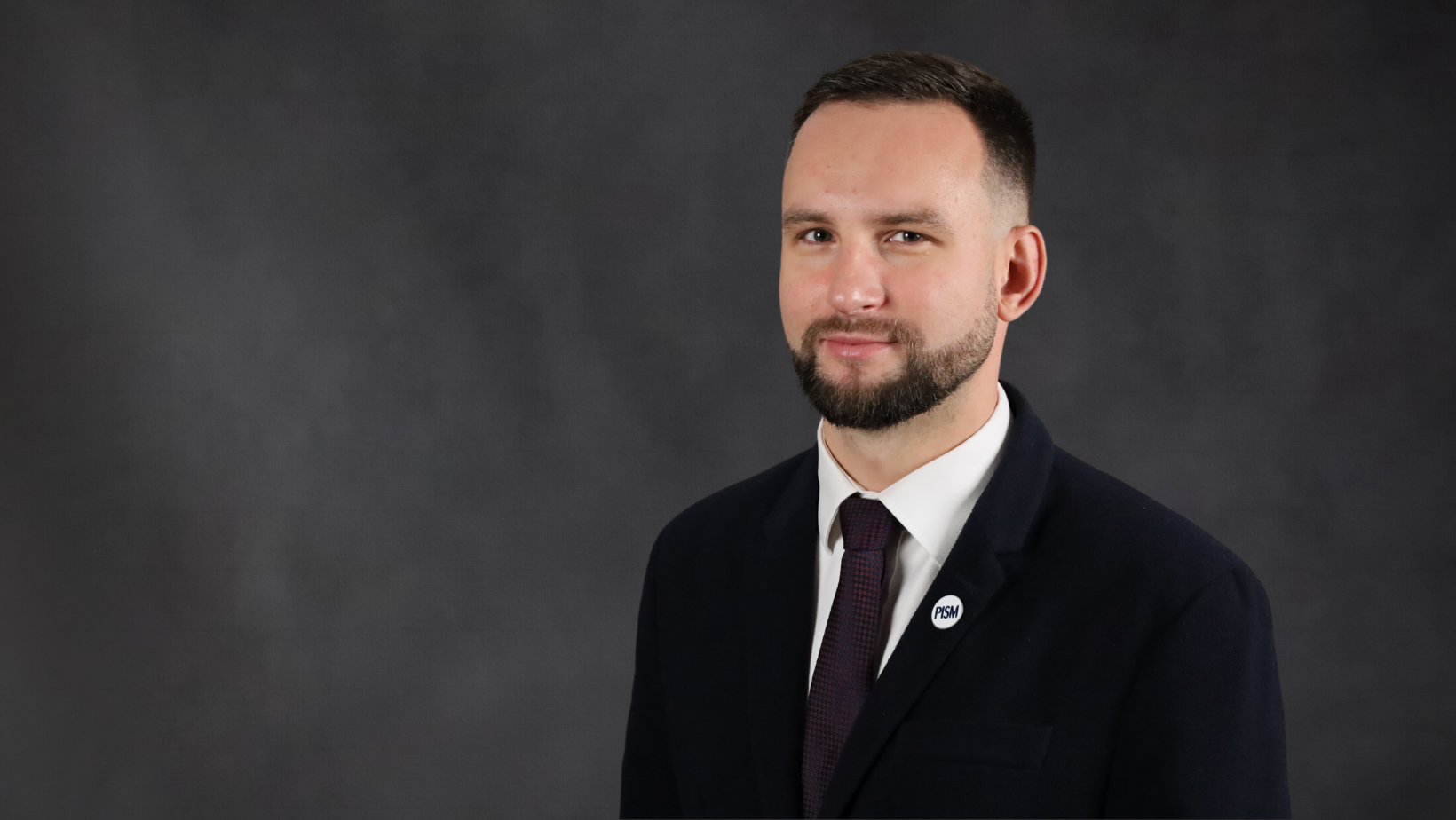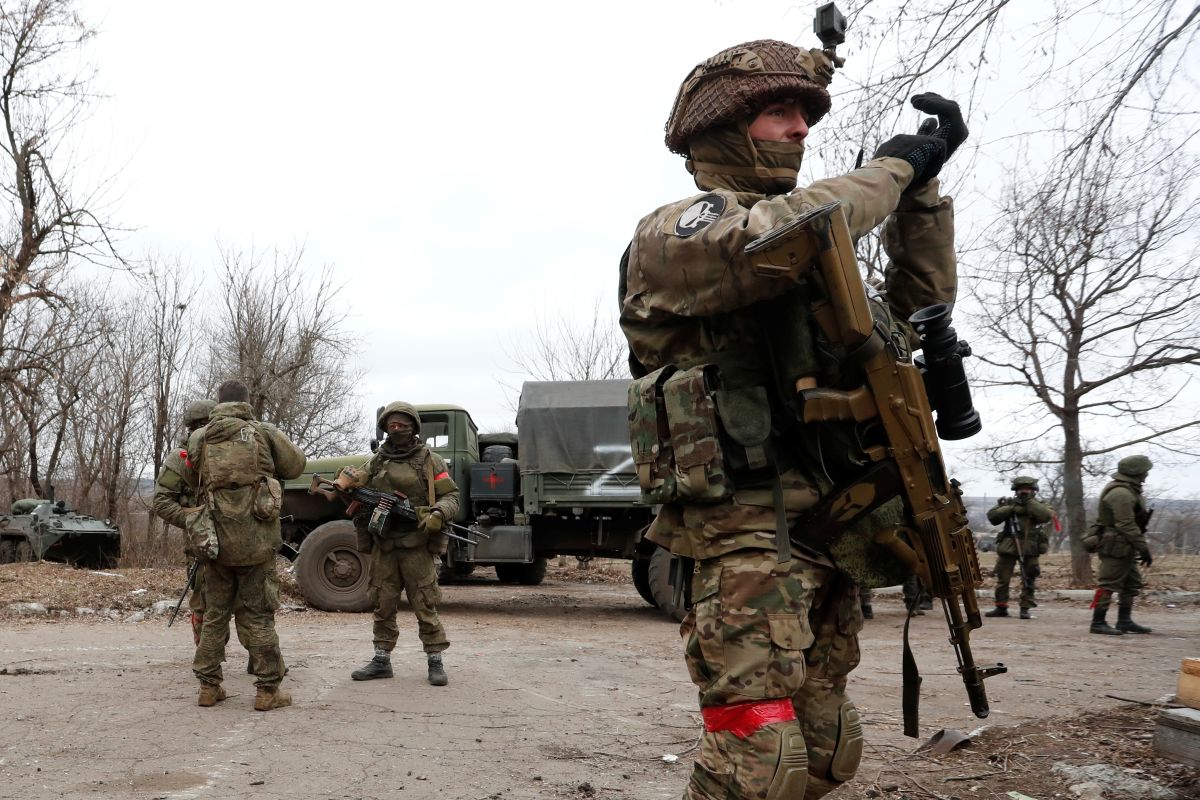Wagner Group Transforms in the Wake of the War in Ukraine
Composed of mercenaries, the Wagner Group is being used by the Russian government to carry out operations in Ukraine and strengthen Russia’s influence in Africa and the Middle East. Its overt participation in the war in Ukraine has forced a change in the nature of the group from an elite unit carrying out special operations tasks to an organisation utilising mass conscription of convicts sent to the frontline. Russia bears the legal responsibility for the Wagner Group’s war crimes. To limit the group’s freedom of action, the EU and the U.S. should recognise it as a terrorist organisation and extend sanctions to its affiliates.
 IGOR RUSSAK / Reuters / Forum
IGOR RUSSAK / Reuters / Forum
The Wagner Group is a military organisation established in 2014 by Russian intelligence to conduct military operations outside Russia. In the beginning, it consisted of mercenaries with experience in the military or security services. Its operation is overseen by the oligarch Yevgeny Prigozhin, a close associate of Vladimir Putin and the owner of a notorious troll factory, the Internet Research Agency (IRA), as well as numerous companies involved in the exploitation of natural resources (Lobaye Invest, M-Invest, M-Finance, M-Finans, Meroe Gold, Evro Polis, Mercury, Veleda, Sewa Security Services, and others). In 2014-2015, the Wagner Group organised a separatist rebellion in Donbas and later participated in the intervention in Syria, where it was protecting infrastructure and conducting combat operations. In subsequent years, it expanded its activities to Africa, where Prigozhin’s companies received contracts for resource extraction in exchange for military assistance. The Wagner mercenaries are responsible for numerous human rights violations and war crimes in Ukraine, Syria, and African countries. Legal responsibility for its activities lies with Russia because it exercises “effective control” over it.
Wagner Group’s Role in the Russian Invasion
Within a year of the full-scale war in Ukraine, the Wagner Group grew from 1,000 to 50-60,000 strong. At the beginning of the invasion, the mercenaries were primarily responsible for reconnaissance, subversion, and special operations (including the attempted assassination of President Volodymyr Zelensky). Until the announcement of the partial military mobilisation in Russia (September 2022), they provided an alternative channel for replenishing personnel losses by recruiting and training volunteers. Currently, about 80% of the Wagner Group’s personnel are individuals recruited from prisons, who were offered a presidential pardon after completing a six-month contract. After brief training, the prisoner-mercenaries have been directed to the most intense areas of the frontline to try to tie up Ukrainian forces, making it difficult for the latter to conduct operations in other directions in order to give Russia time to prepare its spring offensive. It has come at a steep cost, though, with losses of 50-80%. Prigozhin blames the Russian defence ministry and general staff for this, pointing to logistical problems and poor command quality. He uses his troll farms and military bloggers he controls to disseminate the criticism.
Informal Status of the Wagner Group
In the Russian legal system, the operation of private military companies (PMCs) is prohibited. The recruitment, training, financing and use of mercenaries in warfare is punishable by a prison sentence of 4-8 years. Until January 2023, the Wagner Group was deliberately unregistered, allowing the Russian authorities to deny ties to the organisation and reduce the political and image costs of its use. The PMC’s informal status also gave the Russian authorities additional leverage over the group. In the past, the FSB has arrested members of other companies (e.g., Slavic Corps, ENOT Corps) for insubordination. Previous attempts to legalise PMCs in Russia were blocked by the defence ministry and civilian special services, which are rivals for Kremlin influence. The axis of the dispute has been the issue of licensing and supervision of PMCs. There was also concern about the development of private armies that could be used in an internal struggle for power. At the beginning of the year, Prigozhin unsuccessfully lobbied for legal status for his formation. He justified it by, among other things, the need to give the mercenaries veteran status and the privileges that go with it, as well as to organise military burials. Although he failed to achieve this goal, the opening of the Wagner Group’s Military Technology Centre in St. Petersburg (November 2022) and the registration of it in January 2023 as a legal entity that provides “consulting services” (officially not a PMC) can be considered a form of legitimacy.
From the point of view of international law, Wagner Group personnel meet the criteria for being considered mercenaries (Article 47 of the First Additional Protocol to the Geneva Conventions) and are therefore not entitled to combatant status. In the case of the war in Ukraine, Russian citizens (a party to the conflict) belonging to the Wagner Group may be qualified as a militia or other volunteer formation belonging to a party to the conflict (Article 4 III of the Geneva Convention). However, given their numerous human rights violations and war crimes (e.g., the murder of prisoners of war in Olenivka), it is doubtful that they meet the condition of “conducting their operations in accordance with the laws and customs of war”. In this case, the Ukrainian side may consider them “unlawful combatants”, which does not give them the privileges of combatant status.
Sanctions
In late January this year, the U.S. declared the Wagner Group a transnational criminal organisation and imposed sanctions on 15 entities supporting it (including the Chinese company Spacety, which provides the group with satellite images of Ukraine). The organisation was first subjected to U.S. sanctions in 2017. A year later, the sanctions were expanded to include Prigozhin and the entities he controls (including the IRA, Concord Management and Consulting, Concord Catering, Evro Polis) due to interference in the U.S. presidential elections. M-Invest and Meroe Gold, involved in resource exploitation in Africa, were added in 2020. The EU imposed individual sanctions on Prigozhin in 2020 in response to the Wagner Group’s violations of the UN arms embargo on Libya, and in December 2021 extended them to include Mercury, Velada, and Evro Polis in response to human rights violations and the destabilisation of Libya, Mali, the Central African Republic (CAR), Syria, and Ukraine. Despite the sanctions, Prigozhin-controlled entities generated $250 million in revenue between 2018 and 2022. One of the most lucrative parts is the import of gold from Sudan. After the invasion of Ukraine, the EU extended sanctions to Prigozhin’s family members and his companies operating in Africa.
Conclusions
Prigozhin is building his political image by directly engaging in frontline activities in Ukraine and using the support of online trolls and military bloggers. By glorifying the achievements of the Wagner Group and attacking his rivals, he is trying to strengthen his position in the power structures. Prigozhin’s overreaching political ambitions are a challenge to the Kremlin authorities, who are trying to restrict his freedom of action and tone down the criticism of the defence ministry. Given his close ties to Putin and the Wagner Group’s role in operations in Syria and Africa, it is unlikely that the formation he heads would be formally subordinated to the Russian Armed Forces. This would deprive Russia of the ability to unofficially use mercenaries in operations in other regions where natural resource exploitation provides funding for the war in Ukraine. To reduce the group’s freedom of action and deepen Russia’s international isolation, the EU and G7 countries should coordinate and expand sanctions against Prigozhin, his associates, and related entities. The Wagner Group should be added to the EU and U.S. lists of terrorist organisations. This designation can be based on the group’s intimidation of civilians, including attacking a mosque and burning villages in CAR, planting booby-traps in Libya, or participating in the massacres of civilians in Ukraine. This will increase diplomatic pressure on countries using the Wagner Group to end their cooperation with it, under threat of sanctions.





